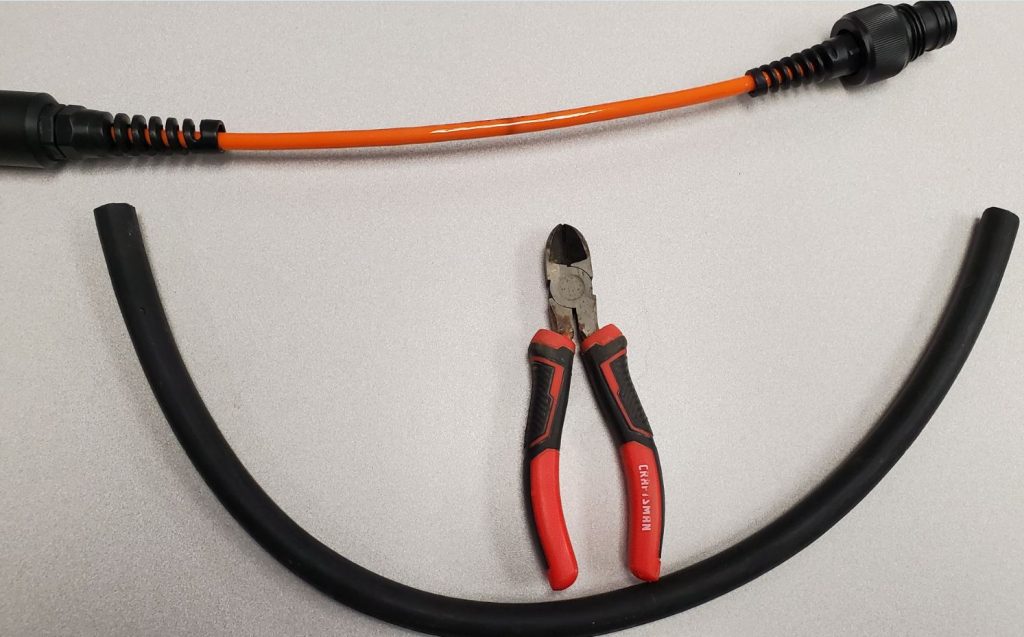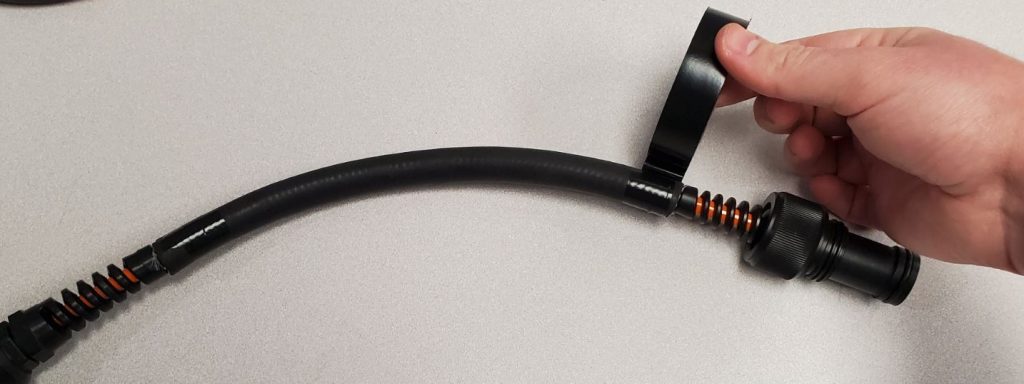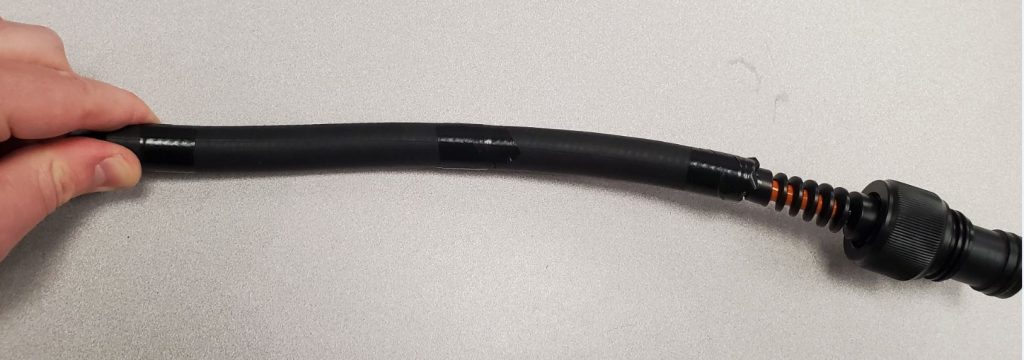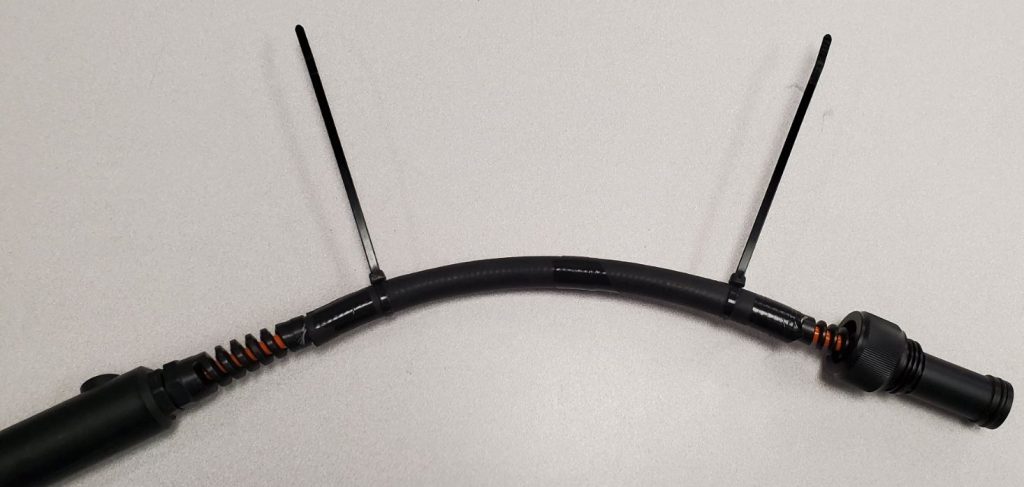Cable Armoring
During deployment sensor cables will naturally undergo movement driven by waves, current or wind. This movement, paired with surface-to-surface contact with nearby objects (mooring hardware, other sensors etc.), can lead to pre-mature cable wear or damage.
While there are many acceptable ways to re-inforce and protect sensor cables from wear, one of the most commonly used methods involves wrapping sensitive points of the cabling in rubber hosing. For most sensor cables and deployment scenarios the use of 3/8″ ID EPDM Rubber hose is sufficient. Depending on the conditions, however, thicker or multiple layers of tubing may be required.
- Identify the portion(s) of the sensor cable that may rub or wear against an irregular surface.
- Cut the appropriate length of tubing required to fit the portion of cable in question.
- Using caution, slit the hose from end-to-end using a knife or razor blade. Only cut through one side of the hose, do not split it into halves.
- Slip the hose around the sensor cable.
- Run electrical tape around the seams of the hose armor at both ends of the piece and periodically throughout its center (as needed, depending on the length).
- Zip ties tightened securely at the ends of the armor piece help keep it tight against the sensor cable, and prevent it from sliding up or down.








